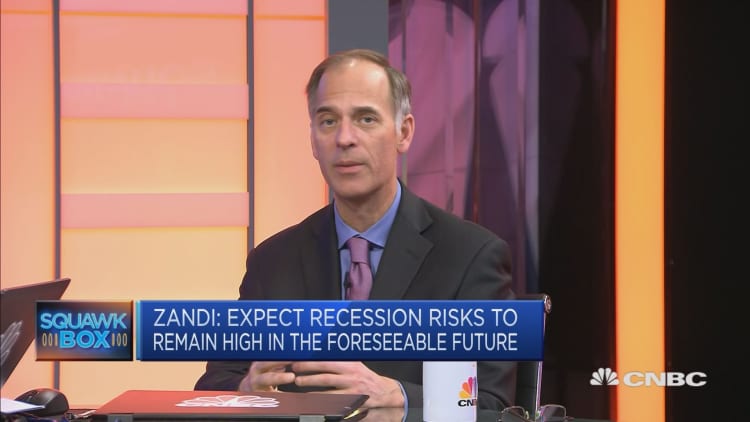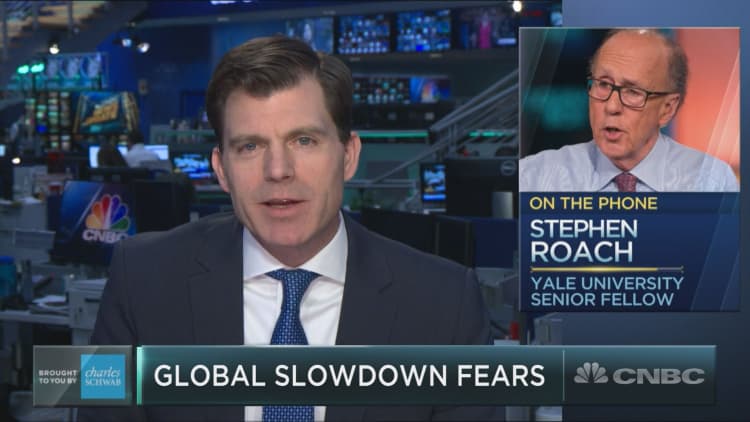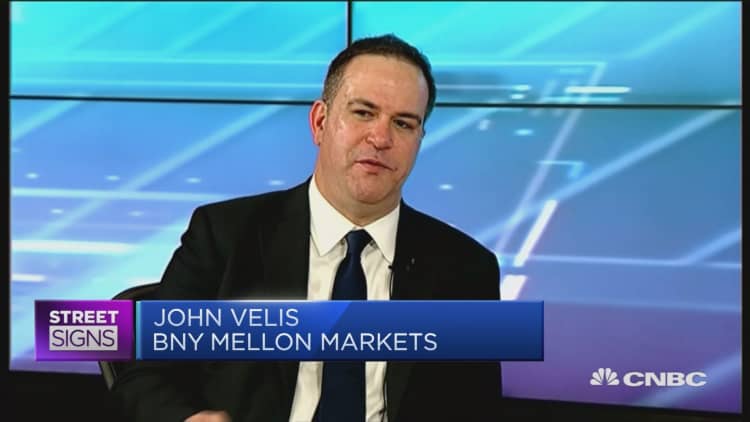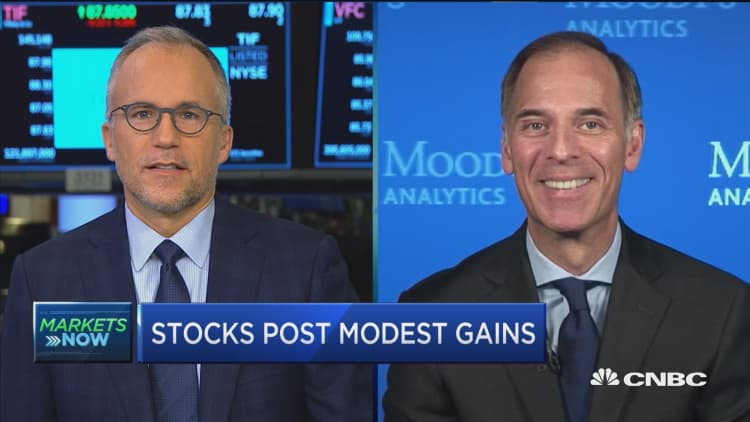
The global economy is "highly likely" to fall into a recession if the U.S. and China don't reach a trade deal within three months, according to Moody's Analytics Chief Economist Mark Zandi.
His prediction was based on current "extraordinarily fragile" business sentiment that was a result of a protracted tariff fight between the two largest economies in the world that started last year. The U.S. and China are now negotiating a deal, with representatives from both countries expected to meet in Washington this week.
"Business sentiment across the globe is extraordinarily fragile," the economist told CNBC's "Squawk Box" on Tuesday. He added that a survey conducted by Moody's recently showed that confidence among companies was at its weakest since the end of the financial crisis a decade ago.
"Businesses are really on edge and I think it's because of this trade war. And if it's not settled in the next couple (to) three months, I think a global recession is highly likely," said Zandi.

If talks between the U.S. and China break down and end without a trade deal, that could hurt business sentiment further and lead companies to reduce hiring, he said. When that happens, unemployment would rise, causing consumers to lose faith in the economy, he explained.
"The difference between an expanding economy and a recessionary one is simply faith — faith that the economy is going to be okay. And if you lose faith, no central banks are going to get that back. That's a recession," said Zandi.
Brexit problem
Adding to risks facing the global economy is the potential that the U.K. would leave the European Union without a withdrawal agreement.
On Monday, the British parliament again failed to break a deadlock surrounding the country's departure from the EU. Lawmakers thrice rejected Prime Minister Theresa May's divorce deal but couldn't find an alternative.
Zandi said his "very subjective" guess is that there's a one-third probability that Brexit would happen without a deal, which "feels uncomfortably high."

"If we have a no-deal Brexit ... certainly the U.K. economy and the EU economy will be in recession, and I think the rest of the global economy will be not too far behind. So I think that'll be a real problem as well," he said.
Signs of slower growth in several major European economies are already threatening countries globally, noted Frederic Neumann, managing director and co-head of Asian economics research at HSBC. If Brexit pushes Europe into a recession, emerging economies — particularly those in Asia — could get hit through two channels, he said.
For one, "Europe would disappear as a big driver of demand for exports," Neumann told CNBC's "Capital Connection" on Tuesday.
Secondly, a weaker Europe would lead to a rally in the U.S. dollar as investors seek safer investments, he said. "A stronger dollar is never good for (emerging markets)," Neumann added.
WATCH: Moody's chief economist says China trade battle is weighing heavily on business confidence



